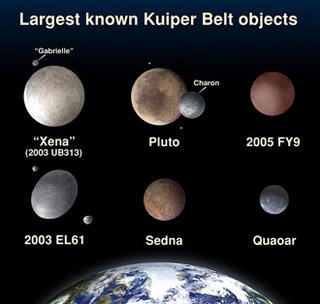(Hat Tip: The Astronomy Blog)
Hubble has provided a unique perspective about the universe that no other space program has matched. Its beautiful pictures have probably kept the space program in public view, and helped launch the imaginations of thousands of others.
But keeping Hubble alive is costing NASA (or rather the American tax payer) $230-250 million a year, money that could be spent elsewhere (as in getting humans back on the moon). Despite the cost, NASA seems to have some emotional attachment to Hubble, although it may require two shuttles in order to secure approval for repairing our galactic eye in the sky.
(MSNBC) The remaining 14 shuttle flights are dedicated to completing the space station by the time the fleet is grounded in 2010. If a Hubble servicing mission is approved, it would have to be squeezed into the space station construction schedule sometime in early 2008.
NASA also would have another shuttle on the launch pad, ready to make an emergency rescue trip if there were a catastrophic problem.
The repair trip would only extend Hubble's life by about five years, which would mean that unless another shuttle or rocket was designed to replace it, there would be no easy way to repair Hubble unless the Russians were solicited.
Hubble has made the universe a lot more beautiful by revealing the hidden mysteries that surround us, but if it does not further humanity off world, what is the point in funding future repair missions?





![ColonyWorlds[at]Gmail[dot]com](http://img.photobucket.com/albums/v438/hiddennook/ColonyWorlds.png)






